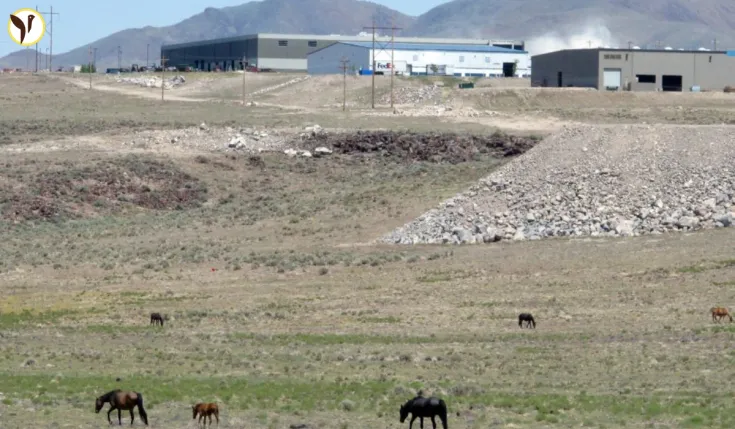Selling Off Public Lands: A Controversial Proposal
A recent amendment introduced in the US House of Representatives has ignited a firestorm of debate. The proposal, spearheaded by Representative Mark Amodei (R-Nev.) and other Republican representatives, seeks to sell off significant portions of federal land in Nevada, impacting several counties, including Lyon, Clark, Washoe, and Pershing. This action has sparked intense opposition from Democrats, environmental groups, and even some local officials, raising concerns about environmental protection, community impact, and the overall process.
The Proposed Land Sales
The amendment mandates the Secretary of the Interior, after a two-year period, to identify and offer for sale specific parcels of federal land within the designated Nevada counties. The specifics vary by county:
- Lyon County: Land would be offered to the City of Fernley at its appraised value, plus all conveyance costs.
- Washoe County: Lands suitable for disposal, as outlined in the Carson City Consolidated Resource Management Plan or designated BLM Land for Disposal, would be offered.
- Clark and Pershing Counties: Significant acreage is earmarked for sale, with a particular focus on Pershing County, where up to 356,100 acres previously identified for disposal by the Bureau of Land Management (BLM) are slated for sale or exchange. In Clark County, the amendment targets areas suitable for affordable housing development.
A crucial point of contention is that proceeds from these land sales, in Clark County in particular, would go to the federal government, not to the state of Nevada to support local development or conservation. This directly contradicts established practices under the Southern Nevada Public Land Management Act (SNPLMA), which allocated funds locally. The amendment also includes provisions for affordable housing, where suitable land parcels would be offered to the government at below market value. However, critics argue that this aspect lacks sufficient detail and safeguards.
The rationale behind the proposed sales is to generate federal revenue and address perceived land-use constraints in rapidly growing areas. Representative Amodei has stated that the amendment represents a community-driven effort, intending to unlock development possibilities restricted by federal land ownership. However, this claim is heavily disputed by many stakeholders who feel their voices have been ignored.
Opposition and Concerns
The proposal has faced widespread condemnation. Democrats have described it as a "land grab" and "disgusting," highlighting the lack of transparency and the rushed nature of its introduction late in a lengthy committee hearing. Several Nevada Democrats, including Senator Catherine Cortez Masto and Representatives Dina Titus and Susie Lee, have voiced strong opposition, emphasizing the negative impacts on water conservation, public schools, and the state's overall economy. They also contend the amendment undermines decades of collaborative efforts focused on balancing land conservation and development, specifically referencing the SNPLMA and the bipartisan Southern Nevada Economic Development and Conservation Act.
Environmental groups, Native American communities, and other conservation organizations have also expressed grave concerns about potential ecological damage, the disruption of traditional lands, and the circumvention of standard environmental review processes. The fear is that selling off these lands could lead to increased resource extraction, potentially harming vulnerable ecosystems and impacting the long-term sustainability of the region. The lack of robust public input and the rushed nature of the amendment’s approval further fuel this opposition.
A Bipartisan Pushback
The controversy surrounding this amendment isn't limited to party lines. While the amendment itself passed along mostly partisan lines, the forming of a new bipartisan Public Lands Caucus underscores a growing movement to protect public lands from privatization. Members of both parties are recognizing the importance of conserving these lands and ensuring fair, transparent processes guide any future land-use decisions.
Conclusion
The proposed sale of federal lands in Nevada is a highly contentious issue with far-reaching consequences. The debate highlights fundamental disagreements over land management practices, the role of federal lands in economic development, and the importance of environmental protection. As the amendment progresses through the legislative process, it's crucial that diverse voices—including those of local communities, environmental advocates, and affected tribal nations—are heard and considered. The ultimate outcome will significantly impact Nevada's landscape, economy, and environment for generations to come.






